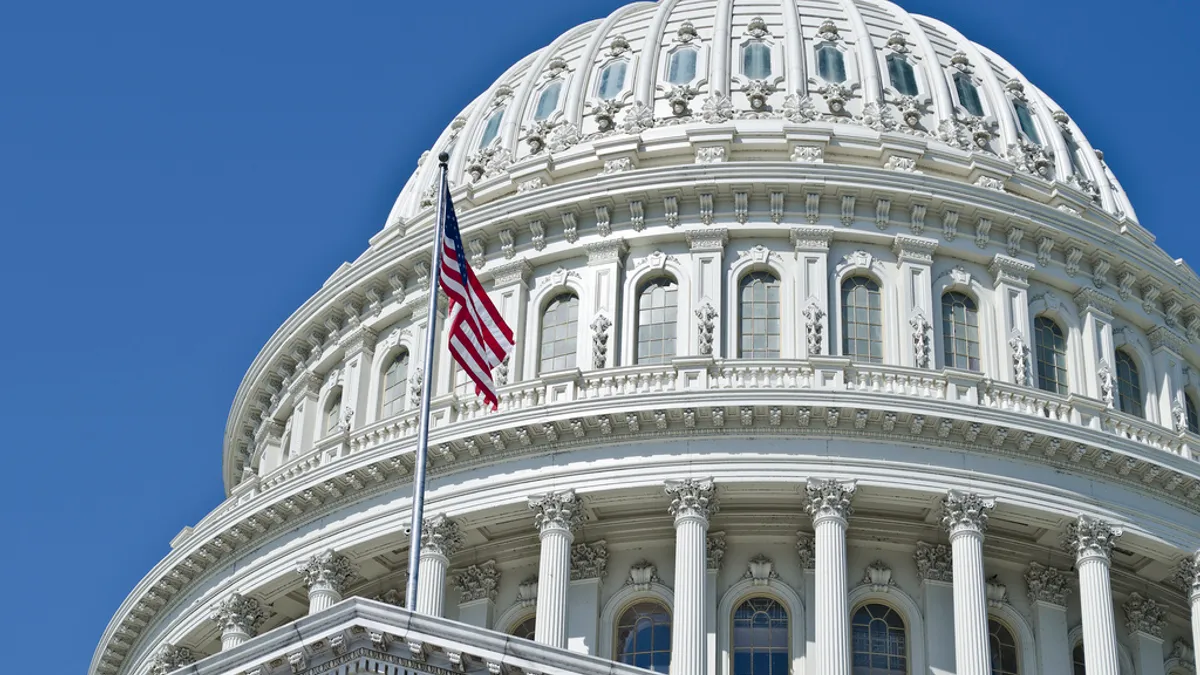UPDATE: The House voted 236-187 on Thursday to approve a resolution to repeal the Department of Labor's Fair Pay and Safe Workplaces Act, according to The Hill. The Senate is also expected to pass the measure. The resolution goes beyond repealing the rule, as it would also prohibit the Federal Acquisition Regulatory Council from issuing an identical or similar regulation going forward.
Dive Brief:
- Republican members of the House and Senate have issued a joint resolution of disapproval in an attempt to rescind the Department of Labor's Fair Pay and Safe Workplaces Act, often referred to as the "blacklisting rule," according to The Hill.
- Rep. Virginia Foxx, R-NC, submitted the resolution to the House under the Congressional Review Act. Sen. Ron Johnson, R-WI, made the same move in the Senate, Reuters reported. Under the Congressional Review Act, Congress has 60 days to review and reject the rule in order to repeal it.
- The Obama-era regulation requires that those contractors wishing to bid on federal construction contracts over $500,000 first submit any record of DOL labor or safety violations for review.
Dive Insight:
In October, a U.S. District Court judge issued a preliminary injunction against implementation of the rule stating that the construction industry groups that filed the suit "properly demonstrated immediate and ongoing injury to their members if the rule is allowed to take effect."
The Associated Builders and Contractor led the legal challenge against the rule, claiming that it infringed on contractors' First Amendment rights and constrained open and fair competition for federal contracts by requiring firms to disclose unadjudicated allegations of violations. The organization also said that meeting the rule's requirements would put an undue burden on smaller contractors.
The rule was initially set to take effect in October 2016 and would have applied first to contracts of $50 million or more and then eventually to those of more than $500,000. Contractors would have been required to submit a one-year history of violations, but that prerequisite would have changed to mandate a three-year history disclosure by April 2017.
Proponents of the rule, like the 56 trade-group-strong AFL-CIO, lauded the FPSW Act at the time of its announcement and said it would force federal contractors to "obey the law and respect their employees’ rights."
This Republican action comes on the heels of a regulatory freeze by President Donald Trump and aids in his vow to repeal many of the former president's regulatory moves. Since his inauguration, Trump has jumpstarted two controversial pipeline projects, ordered federal agencies to begin the design and construction of a border wall between the U.S. and Mexico and issued an executive order to streamline the environmental review process for "high-priority" infrastructure projects.













